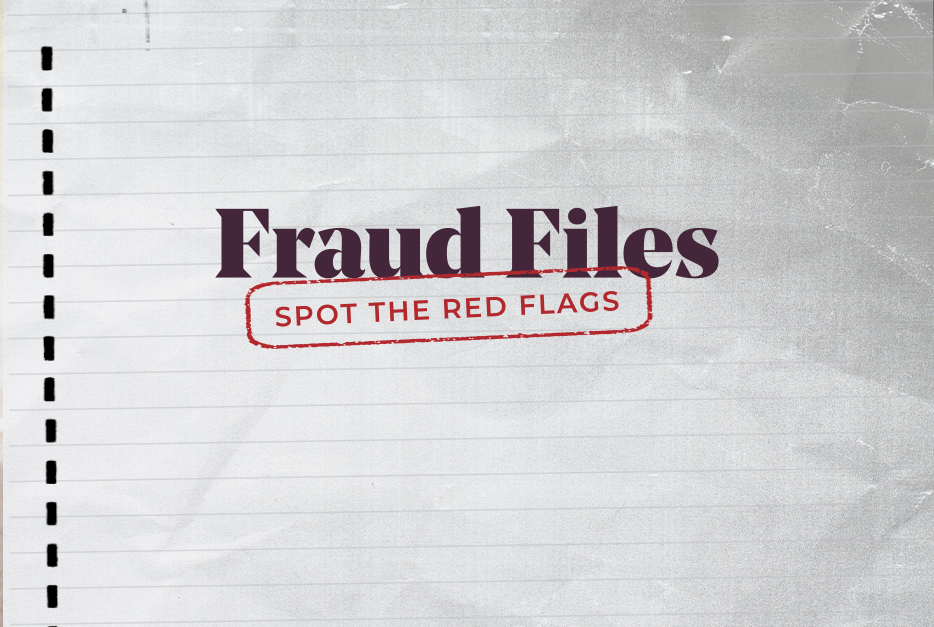Fraud Files: The $10,000 Instagram DM
What happened
Bethany was scrolling through her Instagram one Friday evening when she received a message from a person she didn’t know, named Anthony. Anthony had some mutual followers on his page, so the 22-year-old figured he was a “friend of a friend.” Anthony was kind and inquisitive, and they quickly connected about mutual interests like sports, travelling, and music.
But Anthony had a problem. He told Bethany he had recently moved provinces and needed to sort out some problems with his financial institution before he could access his bank account. Did Bethany mind depositing a $2,000 cheque for him, then sending him the money through an Interac e-Transfer†? He was so grateful for her help, he even let Bethany keep $500.
Bethany, a university student on a tight budget, couldn’t believe her good fortune. She desperately needed some new clothing, and now the money had just fallen into her lap. Over the course of that weekend, Anthony continued to send Bethany funds, and each time, she was able to keep some of the money for herself. Anthony would email a picture of the cheque, and was clear that it could only be deposited through mobile deposit. The cheques often came from different financial institutions and businesses, but he explained it was because they were coming from a lawncare business he managed on the side. The money kept coming in, exactly as Anthony said it would, so Bethany eventually gave him her digital banking password so he could deposit the cheque himself.
But a few days later, Bethany noticed something strange with her account. All of the cheques that Anthony had sent had bounced, and her account was now overdrawn by $10,000. She couldn’t get ahold of Anthony, and didn’t know what to do.
The scam
After days of redialing Anthony’s phone number, Bethany received a call from someone she didn’t expect: A compliance officer from SCU. The compliance officer explained that some unusual activity had been spotted in Bethany’s account, and they suspected that Bethany had been a victim of a mobile deposit cheque scam. All of the cheques that Anthony had sent were fake.
1. The scammer reaches out through social media: Building a convincing profile, with a large network of friends and followers, takes time. That’s why scammers will cast as wide a net as possible to make their efforts worthwhile. As much as the scammer will try to make you feel special, keep in mind that if you’re receiving a message like this, dozens of other people have as well.
Red flag: You’ve received a message from a person you don’t know, often before the weekend so there’s less of a chance of the financial institution spotting the unusual transaction.
2. The scammer sends you a fake cheque: Sometimes the scammer will claim they’re having problems with their bank account. Other times, they will “accidentally” send you too much money and ask for only part of it back. Whatever the situation, the cheque will not be legitimate.
Red flag: The cheque is sent online, and the person insists you deposit the cheque via mobile deposit. You should also be wary if someone asks you to withdraw cash, then deposit it at a bitcoin ATM, as we’re not able to trace the funds once you’ve made a cash withdrawal.
3. The victim spends the extra money: When free money falls into your lap, what else do you do? Scammers want you to remember the positive feelings that extra spending money brings. Those feelings work in the scammer’s favour when they make their next request, until victims have cashed in thousands of dollars. After all, when each ten-minute transaction is made from the comfort of your own couch, it doesn’t feel like anything has happened.
Red flag: The person continues to send you cheques, or even asks for your banking information. In addition, the cheques you receive are coming from strange businesses or locations that don’t line up with the person’s story.
4. The fake cheques bounce, leaving the victim on the hook to repay the money: Scammers are professionals. Typically, by the time you notice the cheque hasn’t gone through, the scammer has moved the money from account to account, or withdrawn the funds, leaving nothing to recover. Even if the victim has not yet spent the extra amount, they’re still responsible for repaying the money they transferred to the scammer.
Red flag: After the cheques bounce, the person is suddenly unreachable or refuses to reimburse the money.
What happens at SCU
Although the compliance officer called Bethany as soon as the suspicious activity had been flagged, Anthony had already moved the money to another account, making the funds difficult, if not impossible, to recover. And because Bethany had willingly deposited the cheque, and had given the scammer her digital banking information, our insurance provider could not cover the loss.
Still, the SCU compliance officer recommended she report the incident to the Canadian Anti-Fraud Centre. It helps raise awareness of what types of fraud are happening, so they, in turn, can educate others. In addition, Bethany also reported the incident to the local authorities.
Key takeaway: If it seems too good to be true, it usually is. And if you’re not sure, you can always give us a call at 1.800.728.6440 and ask.
Does this story sound familiar?
If this has happened to you, or someone you know, here’s how you can report it.



